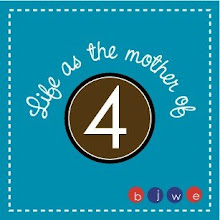One of the favorite words in the toolkit of anti-bio-medical proponents is “desperate.” The image of a woman running in circles, wringing her hand and crying in desperation comes to mind; how quietly effective. With one word you can set yourself up as a separate, logical being unconfused by emotion while relegating those you disagree with to a useless, emotionally clouded, dithering position. And best yet, you’ve put us on the defensive. Bravo! While we’re busy being offended you are trying to make us irrelevant.
Someone called me once to talk about moving to Massachusetts Massachusetts Idaho Massachusetts
We have sacrificed quite a bit to remain here. It’s expensive to live in Massachusetts. Eight years ago when the economy started to dip, my husband switched roles to remain employed. Almost everyone else in his department was laid off. His new position required Monday through Friday travel, which he did for several years. And our family of six was crammed in a tiny (albeit charming) house built in the 1920s (sans closets) on the wrong side of the tracks. It was a difficult couple of years.
Money is an easy sacrifice. Few people value money more than their child. My husband’s sacrifice of time spent away from us was harder to make, but the progress our children made was worth it. So, I’m hard pressed to understand why other people aren’t willing to make the same kinds of sacrifices.
Should I put those who don’t try bio-medical treatments in that same category? Is it selfish to begrudge the money? Or is it more hurtful to try and fail than to never try? Are we desperate and you selfish? That assertion is a little bit offensive isn’t it? I honestly don’t believe that people who don’t try bio-medical approaches are selfish any more than I believe that parents who try biomedical approaches are desperate. I think it’s shortsighted not to try biomedical interventions but I respect that parents are all in different places: emotionally, financially and scientifically.
I have little expectation of changing rigidly held beliefs but I wanted to let the neurodiversity movement know that calling me desperate doesn’t leave me sputtering with outrage. I see it for what it is. The label “desperate” is a smug attempt to set yourself up as an authority. It’s an attempt to pigeonhole people you do not agree with. And perhaps for some, it is a rationalization for not trying biomedical interventions or the result of being disappointed from lack of improvement. I don’t believe that an unwillingness to try bio-medical interventions is selfish. So, I will not call those who don’t try selfish – but I could and be as accurate as you are when you call me desperate.
I’ve read the “desperate” argument frequently in the media and online. While at first it offended me, and I felt belittled parents and their observations; it never struck a cord. I never felt desperate about Will’s recovery. I knew a window existed, during which more progress could be made but our decisions have always been for Will’s benefit. We put Will on the GFCF diet because of allergy testing. Improved sleeping, awareness, decreased stimming, increased interaction with others, mastery of programs, and weight gain resulted; with the additional benefit of the loss of allergy symptoms such as eczema, red cheeks, tongue sucking and eliminating his abdominal pain. Treating chronic diarrhea also has resulted in eliminating behaviors attributed to Will’s diagnosis of autism but clearly resulted from biological issues rather than behavioral issues. Once we observed that treating Will’s biological issues increased his functioning and interaction with the world we were eager to try more.
Will didn’t talk until he was 7. He wouldn’t have talked without bio-medical treatment. Because he can talk he interacts with more of the world. His teachers have a better understanding of what he knows. And most importantly he is safer.
I understand that not every decision a family makes can be for the benefit of one member even if their needs are more significant. People can only do what they are capable of. We all fall short of ideal. The question is – can you see that hope, determination, and sacrifice does not equal desperation? If you can’t … well, perhaps that doesn’t have anything to do with me.
I wrote this several months ago, long enough ago that I’ve now written something else quite similar, Bridging the Gap. I thought I’d post this one first then post the next in my "series” tomorrow. I find my evolution of thought (aka: whatever sets me off that particular day) interesting. At this point – several months later -- I think the label desperate has more to do with the person who is labeling than the person being labeled.







No comments:
Post a Comment